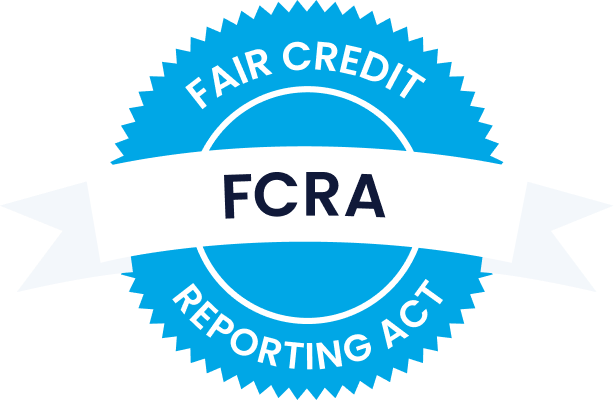Running a rental property can be an excellent way to supplement your income. But as a landlord, you also face the risk of a troublesome tenant who fails to pay their rent. Without timely rent payments, your expenses will quickly erode whatever income you earn from your rental property, leaving you with a loss at the end of the year.
Naturally, as a landlord, you may have asked yourself if you can claim a rental loss on your tax return from unpaid rent. After all, missing rent payments aren’t everyday expenses like utility bills and property taxes.
Provided you meet specific criteria, a rental loss arising from uncollectible rent is a tax-deductible expense in Canada.
In this article, we’ll explain how unpaid rent qualifies as a deduction and how you can use it to reduce your tax bill.

How to claim a rental loss when your tenants don’t pay their rent
If your rental property suffers losses from uncollectible rent, you can deduct them from your gross rental income. Essentially, the uncollectible rent becomes another expense you can claim as a landlord.
To be eligible for this deduction, you must meet the following criteria:
- Your tenant must owe you rent at the end of the current tax year
- The rent is uncollectible by the end of the current tax year
- The rent has been included or deemed to have been included in your income, either in the current year or a previous tax year
In addition, you must provide the CRA with proof that you made reasonable attempts to collect the rent.
For example, you can supply emails or text messages where you discussed the past-due payments with your tenant. A notice to creditors that you received from your tenant’s bankruptcy trustee would also qualify as proof.
Rental losses from rent payments below fair market value
Suppose a family member or friend has recently lost their job and is experiencing financial hardship. To help them out, you offer them tenancy in an apartment you own for a rate well below what you would charge for a regular tenant. As a result of the discounted rate, you incur a rental loss, which you’d like to claim when filing your taxes.
Unfortunately, in this scenario, the CRA would disallow you from reporting the rental loss on your tax return. You can’t claim a rental loss that arises from renting a property below fair market value to someone you know.
On the flip side, however, you don’t need to report the rental income you earn, either. It’s only fair, right?
From the CRA’s perspective, you’re not running a genuine rental operation if your expenses consistently exceed your income. There must be some expectation of profit for you to claim a loss that occurs.
Other expenses you can claim when attempting to collect rent from tenants
When you pursue a tenant to collect past-due rent, you may incur additional expenses along the way. Some of these are eligible for a deduction, which will serve to increase the rental loss you can report on your tax return.
The most common expenses you can claim are travel costs and legal costs.

Travel Costs
Travel costs qualify as a tax deduction only under the following circumstances:
- You may only claim the cost of commuting to your property, not from it
- The purpose of the trip must be to collect rent from your tenant, perform necessary repairs, or carry out other management activities
- You must own two or more rental properties
Suppose you own only one rental property. In that case, you can only deduct your travel costs if the purpose of your visit is to conduct repairs and maintenance. If you’re travelling to collect rent, you cannot write off your travel expenses.
Assuming that your personal vehicle will be your mode of transportation, you must track your mileage when driving to your rental. You can only claim the portion of expenses (e.g., fuel, oil, insurance, etc.) that relate directly to your commute to the property.
Legal costs
As months of unpaid rent begin piling up, you may decide to pursue legal action against your tenant with the aid of your lawyer. Any legal fees you incur to collect overdue rent are tax-deductible expenses.
Should your tenant still refuse to pay you what they owe while occupying your rental, the only other solution is to obtain a court order to evict them.
The cost of evicting a tenant typically involves legal fees, court fees, and sometimes sheriff fees to enforce the order. You can write off all these costs against your rental property.
How to apply a rental loss on your tax return
You can apply your rental loss against other types of income you earned during the year, such as employment income. By doing so, you’ll lower your total tax bill.
If your rental loss (or a portion of it) exceeds your other income sources, it becomes a non-capital loss. You can carry back a non-capital loss three years or forward 20 years.
To carry a non-capital loss back to a prior year, you must complete Form T1A – Request for Loss Carryback and submit it with your tax return.
Our Final Thoughts
If your tenant fails to make their rent payments, your income can dry up quickly, putting a big dent in your bank account. Luckily, Canada’s tax code allows you to claim a rental loss that results from uncollectible rent.
You can use your rental loss to offset any other income you earned during the year. Just remember to provide proof that you pursued your tenant for missed rent. Otherwise, the CRA won’t allow you to deduct it.
There’s no way to know with certainty if your tenant will one day stop paying their rent. However, you can eliminate this risk with SingleKey’s Rent Guarantee, which will provide you with coverage for lost rent for up to 12 months and up to $60,000. If the thought of getting stuck with a non-paying tenant keeps you up at night, visit our Rent Guarantee page to see how this service can ensure your rental income keeps flowing.




